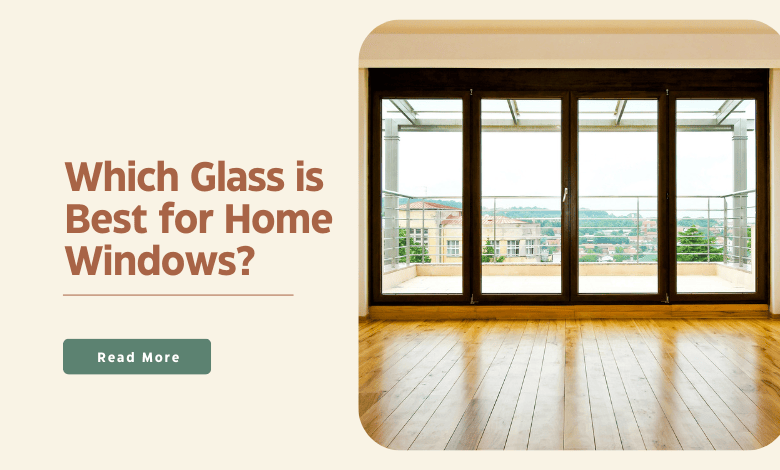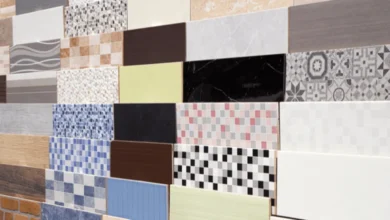Which Glass is Best for Home Windows?

Choosing the best glass for your home windows is crucial for enhancing energy efficiency, ensuring safety, and adding aesthetic value to your property. Various types of glass offer different benefits, and understanding these can help you make an informed decision. This article delves into the details of thermal unit, tempered glass, float glass, laminated glass, wired glass, and fire-rated glass to guide you in selecting the ideal glass for your home windows.
Thermal Unit
Thermal unit glass, often referred to as insulated glass or double-glazed glass, is designed to improve energy efficiency. This type of glass consists of two or more glass panes separated by a spacer and a layer of air or inert gas, such as argon, in between. The primary benefits of thermal unit glass include:
- Energy Efficiency: The air or gas-filled space acts as an insulator, reducing heat transfer. This helps in maintaining indoor temperatures, leading to lower heating and cooling costs.
- Noise Reduction: The multiple layers of glass help to dampen noise, making it ideal for homes in noisy urban areas.
- Condensation Prevention: The sealed space between the panes reduces the chance of condensation forming on the inside of the window.
Thermal unit glass is an excellent choice for homeowners looking to enhance their property’s energy efficiency and comfort.
Tempered Glass
Tempered glass, also known as toughened glass, is processed through controlled thermal or chemical treatments to increase its strength compared to normal glass. Key features of tempered glass include:
- Safety: When broken, tempered glass shatters into small, blunt pieces that are less likely to cause injury. This makes it a preferred option for areas where safety is a concern, such as bathroom windows and doors.
- Strength: It is four to five times stronger than standard glass, making it resistant to impacts and thermal stress.
- Durability: Tempered glass can withstand higher temperatures, making it suitable for areas exposed to significant temperature variations.
Tempered glass is ideal for homeowners prioritizing safety and durability in their window selection.
Float Glass
Float glass is the most common type of glass used in windows. It is made by floating molten glass on a bed of molten metal, typically tin. Its key attributes include:
- Smooth Surface: The manufacturing process results in a smooth and uniform surface, making it suitable for a wide range of applications.
- Clarity: Float glass provides excellent optical clarity, allowing maximum light transmission.
- Cost-Effectiveness: It is relatively inexpensive compared to other specialized glass types.
While float glass is a versatile and affordable option, it lacks the enhanced safety and thermal properties of other glass types.
Laminated Glass
Laminated glass is created by bonding two or more layers of glass with an interlayer, usually made of polyvinyl butyral (PVB). This construction offers several advantages:
- Safety and Security: The interlayer holds the glass pieces together if it breaks, reducing the risk of injury from sharp shards. It also makes the glass more difficult to penetrate, providing enhanced security.
- Sound Insulation: Laminated glass significantly reduces noise levels, making it an excellent choice for homes in busy areas.
- UV Protection: The interlayer can block up to 99% of harmful UV rays, protecting your interior furnishings from fading.
Laminated glass is ideal for homeowners seeking improved safety, security, and sound insulation.
Wired Glass
Wired glass incorporates a mesh of wire within the glass, offering unique benefits:
- Fire Resistance: The wire mesh holds the glass in place even when it cracks under high temperatures, providing a degree of fire resistance.
- Safety: While not as strong as tempered glass, wired glass can still prevent the glass from falling out when broken, reducing the risk of injury.
Wired glass is often used in settings where fire resistance is essential, such as in stairwells and fire doors.
Fire-Rated Glass
Fire-rated glass is specially designed to withstand high temperatures and prevent the spread of fire and smoke. Its features include:
- Fire Protection: Fire-rated glass can endure high temperatures for a specified period, typically ranging from 20 minutes to several hours, depending on the rating.
- Safety and Integrity: It maintains its integrity and prevents the passage of flames, smoke, and hot gases, ensuring safe egress during emergencies.
Fire-rated glass is a crucial component in buildings where fire safety is a top priority, including homes with strict building codes.
Conclusion
Selecting the best glass for your home windows depends on your specific needs and priorities. Whether you seek energy efficiency, safety, durability, or fire resistance, there is a type of glass that suits your requirements. Thermal unit glass is excellent for energy efficiency, tempered glass offers superior safety, float glass is cost-effective and versatile, laminated glass provides enhanced security and sound insulation, wired glass is ideal for fire resistance, and fire-rated glass ensures fire safety. When it comes to finding the perfect window glass for your project, consulting with a Toronto glass repair and replacement company like ‘Tanic‘ can be a helpful resource.




